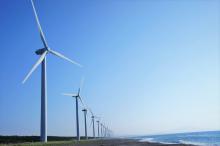Philippines National Transmission Corporation (“TransCo”)
The National Transmission Corporation (TransCo) is a government agency created under Republic Act No. 9136, otherwise known as the Electric Power Industry Reform Act (EPIRA) of 2001.
Since March 1, 2003, TransCo operated and managed the power transmission system that links power plants to the electric distribution utilities nationwide. The same law mandated the privatization of TransCo through an outright sale or management concession agreement.
